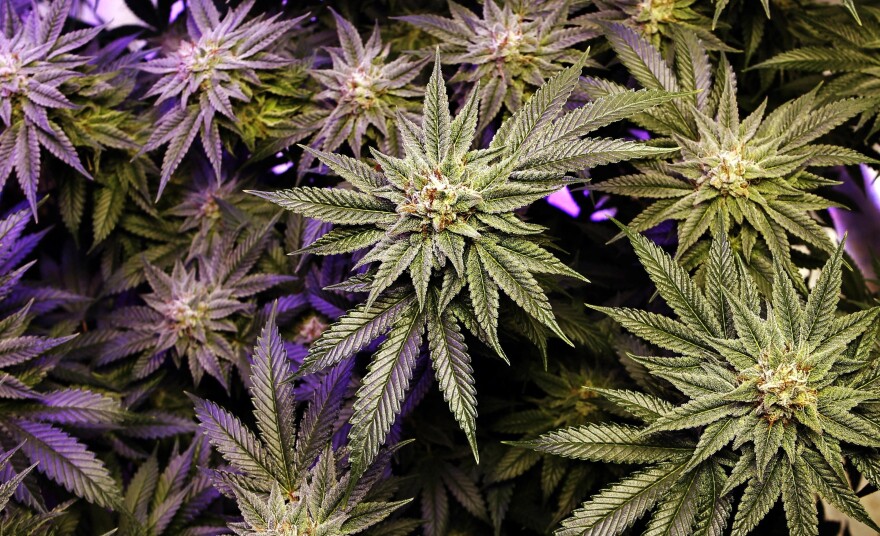In a historic shift, the federal Drug Enforcement Administration (DEA) is proposing to reclassify marijuana as a less dangerous substance. It's currently ranked as a schedule one drug, in the same category as heroin and LSD. Reclassifying it won't make marijuana legal. And here in Maine, some advocates don't think the change goes far enough, and won't make much of a difference.
The DEA's decision to reclassify marijuana from a schedule one drug to a schedule three, marks a major departure for the agency, which has traditionally maintained that it has no medical value and a high rate of abuse potential. But advocates and regulators are split on the importance of the change, especially in states like Maine, where marijuana is already legalized.
"It still puts it in a difficult class, in our opinion," Susan Meehan with the Maine Cannabis Union said.
She said reclassification doesn't go far enough. Schedule three drugs are considered those with a moderate to low abuse potential, drugs like ketamine, anabolic steroids and testosterone.
"You know, it still puts it in a class that's even more stringent than something like Valium," she said.
So, while Meehan said it's a symbolic move, she points out that federal regulations continue to lag behind the two dozen states that have legalized recreational use, and 38 more that allow medical cannabis. Instead, she'd like to see a new and even lower classification for it.
John Hudak, director of the Maine Office of Cannabis Policy, said the reclassification will make a difference.
"It is doing something that no administration in the past 54 years has done, which is to consider cannabis, something other than being in the category of the most dangerous drug," he said.
Once marijuana is a schedule three drug, Hudak said cannabis businesses can access federal tax credits that they were previously excluded from. In addition, funding will be available for federal research on marijuana.
State representative David Boyer, who previously led the effort to legalize marijuana in Maine, said he's glad Maine businesses will be able to access those tax credits. But he agreed this is not the end of the fight for legalization at the federal level.
"We're hoping that this reclassification helps with the research with the banking, but we're ultimately looking, you know, to de-schedule cannabis," Boyer said.
As far as cannabis users, Matthew Schweich, with the national Marijuana Policy Project, said the change won't have much of an effect even if it has been legalized on the state level.
"Anytime I see a change that can unlock research potential, I'm very excited and pleased," Schweich said. "So that to me is the best thing about this. But if you're an individual who uses cannabis for medical or recreational reasons, you are still beholden to state law."
Because businesses still can't transport marijuana across state lines, it's created siloed industries and regulations in each state, Schweich said. And that contributes to higher barriers for new small businesses to enter the market.
"And when you have higher barriers to entry, that means the capital requirements are higher, and that squeezes out smaller operators, small businesses, it tips the scales to a bigger group that can open a chain," he said.
The ultimate solution, Schweich said, is for Congress to pass legislation to fully legalize marijuana.
For now, the reclassification awaits review by the White House Office of Management and Budget. It would then be open for public comment and considered by an administrative judge before it could go into effect.



